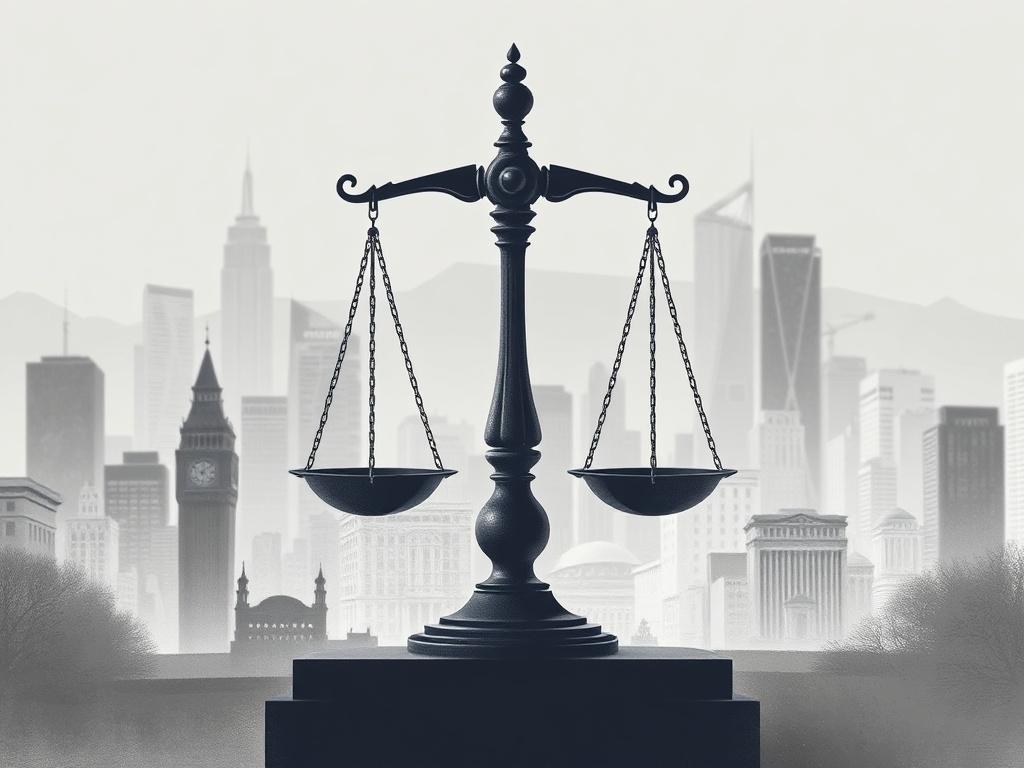
The ongoing legal battle between Ukraine and Russia at the International Court of Justice (ICJ) has garnered significant attention, highlighting critical issues of international law and state sovereignty. As tensions escalate and conflict continues, the case serves as a pivotal moment for both nations, with far-reaching implications not only for the parties involved but for the international community as a whole. This blog post offers a deep dive into this intricate legal dispute, shedding light on the arguments being presented and the potential outcomes that could reshape the geopolitical landscape.
Understanding the complexities of the Ukraine v. Russia case at the ICJ requires an exploration of the key legal arguments laid out by both sides and their respective implications. As the court navigates these contentious claims, the implications for international law, human rights, and regional stability come into sharp focus. This analysis will provide insights into what the future may hold for this ongoing legal battle, illuminating the paths ahead for both Ukraine and Russia as they seek resolution through the judiciary.
An overview of the Ukraine v. Russia case at the ICJ
The Ukraine v. Russia case at the International Court of Justice (ICJ) stems from the escalating tensions between the two nations, particularly following Russia's annexation of Crimea in 2014 and its involvement in the conflict in Eastern Ukraine. In January 2017, Ukraine brought the case to the ICJ, arguing that Russia violated international law, particularly the Convention on the Elimination of All Forms of Racial Discrimination and the International Convention for the Suppression of the Financing of Terrorism. This significant legal battle underscores the geopolitical tensions and seeks to establish a legal precedent concerning state accountability and the enforcement of international norms.
As the case evolves, it captures the attention of the international community, highlighting the broader implications of legal disputes in conflict situations. The ICJ's role as the principal judicial organ of the United Nations makes this case particularly important for upholding international law and ensuring that nations abide by their obligations. The ongoing legal proceedings not only aim to address Ukraine's claims against Russia but also serve as a critical examination of how international law can be applied to complex geopolitical issues, thereby shaping future interactions between states embroiled in similar conflicts.
Key legal arguments and implications for both nations
The Ukraine v. Russia case at the International Court of Justice (ICJ) hinges on several compelling legal arguments. Ukraine accuses Russia of breaching the Convention on the Prevention and Punishment of the Crime of Genocide, particularly in the context of Russia's annexation of Crimea and its ongoing actions in eastern Ukraine. By claiming that Russia has unlawfully supported separatist movements and perpetuated acts that qualify as genocide, Ukraine seeks accountability and restoration of its territorial integrity. Conversely, Russia counters these allegations by asserting that Ukraine's military operations against ethnic Russians in the Donbas region justify its intervention. This clash of legal narratives not only complicates the case but also highlights the broader geopolitical tensions that influence the ICJ's proceedings.
The implications of the ICJ's ruling could reverberate through international law and relations. For Ukraine, a favorable ruling might bolster its claims to sovereignty and offer a platform for further action in international forums, potentially paving the way for reparations or sanctions against Russia. On the other hand, a ruling in Russia's favor could embolden its stance in the region and diminish Ukraine's leverage in ongoing negotiations. Furthermore, the outcome of this case may set important precedents for how international law addresses issues of territorial integrity, state sovereignty, and the obligations of nations under international treaties. These developments could reshape the landscape of international relations and conflict resolution for years to come.
What the future holds for the ongoing legal battle at the icj
The ongoing legal battle between Ukraine and Russia at the International Court of Justice (ICJ) carries significant implications not only for the two countries involved but also for international law and global diplomacy. As the case progresses, it will set important precedents regarding state accountability and sovereignty in conflicts. Legal experts anticipate that the ICJ’s rulings will shape future interpretations of international treaties, particularly concerning the prevention of genocide and discrimination. Furthermore, the outcomes might influence other territorial disputes worldwide, underscoring the importance of adhering to international norms and legal frameworks.
As the proceedings unfold, the potential for diplomatic resolutions remains a critical factor. Many observers believe that the ICJ legal processes may eventually pave the way for negotiations or settlements outside of court, particularly as Ukraine seeks to hold Russia accountable for its actions while also navigating ongoing conflict in the region. The court's decisions and interim measures can further encourage dialogue between the nations, which could lead to a broader approach toward peace and stability. However, the complexities of political dynamics and international relations may impact the court's effectiveness in resolving this contentious issue, leaving future outcomes uncertain.